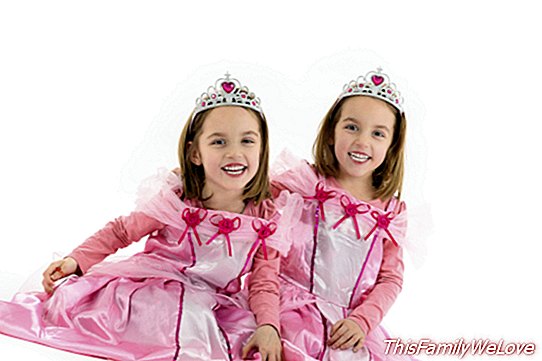The effect of Disney princesses on girls' self-esteem
When we are children it is impossible not to have idols to follow and to whom one wants to appear when he grows up. There are many characters that appear as heroes in the world of children, and then it is the media that are responsible for turning these characters into idols. But what influence do these characters have on the psychology and development of our children?
Precisely this is what the study wanted to investigate Pretty as Princess from Bringham Young University. This work has wanted demonstrate how the culture of Disney princesses influence girls' self-esteem who see these films and are influenced by these stereotypes present in the movies starring these characters.
Gender stereotypes of children's characters
Sarah M. Coyne, author of this study, explains the process by which a girl confronts these films with characters with such clear characteristics: "We know that those girls who adhere strongly to stereotypes of the female sex end up feeling that they are not able to do some things, they do not have much confidence in themselves and they can be good at math or science, they do not like to get dirty, they do not like to experiment with things a lot. "

A total of 200 pre-school children of both sexes participated in this study to see how they were affected by the material found in Disney princess movies. The data collected in this study revealed that the stereotypes of these characters affected more than was previously believed to the self-esteem of children.
Less self-esteem, more apprehension of stereotypes
The results of this study showed that girls with problems of self-esteem are more likely to be "committed to the stereotypes of Disney princesses over time." According to Coyne: "Disney princesses are one of the first examples of an ideal of thinness, as women, we have this ideal present throughout our lives, and it really begins at the level of the princesses, at the age of 3 or 4 years".
In this study, Coyne expresses the case of the film Brave, which was the subject of criticism when in 2013 Pixar was asked to redesign the protagonist of this film to make it different from the princesses that had been seen so far. "I love when you create a princess that does not represent any stereotype, as is the case Merida in Brave," said Coyne.
However, despite the fact that in this film the protagonist did not enter the canons of the typical Disney princess, finally the promotion of this film ended up sexualizing her. Coyne remembers this: "I took my daughter to see Brace and after the cinema we had a conversation about how strong, courageous and independent Merida was in the film, and then later in the promotion they lost weight, they sexualized her, they removed the bow and arrows, they put on makeup. "
Damián Montero




